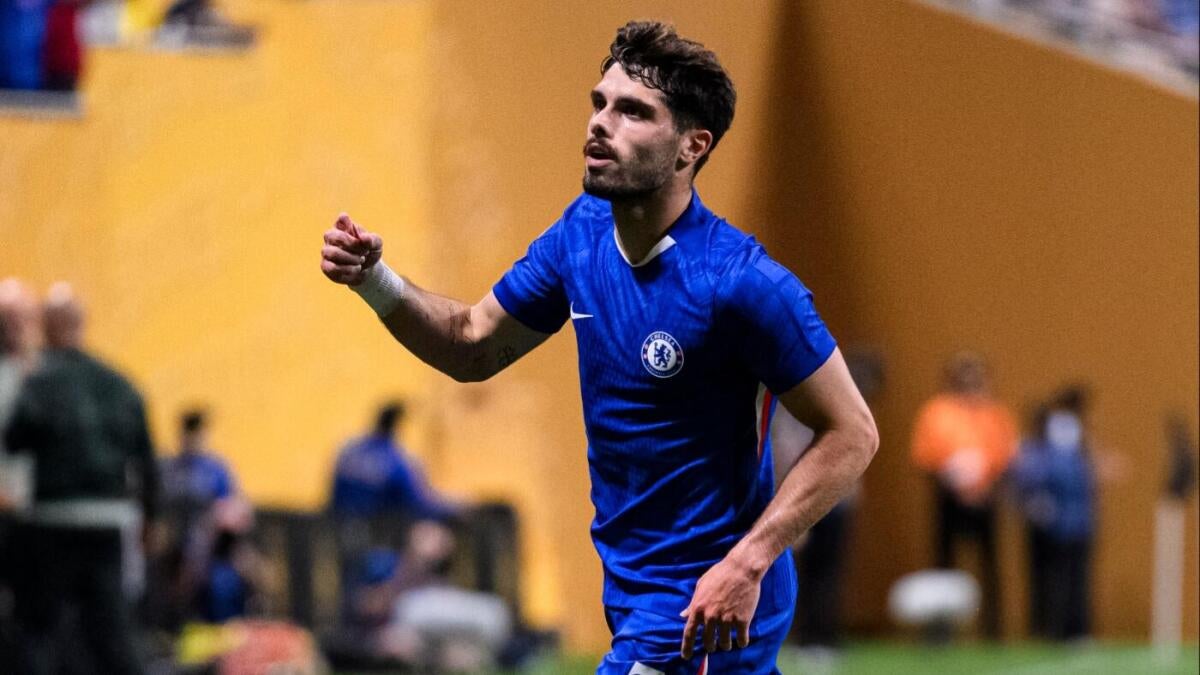A New Chapter in Global Club Football: The 2025 FIFA Club World Cup
The 2025 FIFA Club World Cup, unfolding across various cities in the United States from June 14 to July 13, marks a transformative moment in international club football. This edition isn’t just a tournament; it’s a sprawling celebration of football’s diverse cultures and styles, amplified by an expanded format that invites a wider array of global talents to the stage. With traditional powerhouses locking horns alongside emerging contenders, the competition embodies the sport’s growing worldwide appeal and competitive complexity.
Chelsea’s Dominance Sets a Confident Tone
Chelsea’s Group D opener against LAFC at Atlanta’s Mercedes-Benz Stadium was more than a routine match—it was a statement. In a solid 2-0 win, Chelsea demonstrated tactical maturity and composure, marking their readiness to make a deep run. Goals from Pedro Neto and Enzo Fernández showcased the club’s blend of emerging talent and strategic precision, underscoring their capability to seize control in high-pressure international matches.
Chelsea’s approach in the game was assertive and disciplined. Pressuring LAFC’s goalkeeper Hugo Lloris early, they imposed a rhythm that left their opponents struggling to find footing. The introduction of Olivier Giroud, a veteran striker with a storied past at Chelsea, injected an intriguing narrative but proved insufficient to turn the tide. Chelsea’s control of possession, their swift capitalizing on opportunities, and defensive solidity signaled their intent to dominate Group D and beyond. This win also highlighted their ambition to leverage their momentum as UEFA Conference League winners into a formidable Club World Cup challenge.
Boca Juniors vs. Benfica: Clash of Continents and Styles
Parallel to Chelsea’s confident start, the meeting between Boca Juniors and Benfica in Group C illuminated the rich cultural and tactical contrasts that the expanded tournament format aims to showcase. Boca Juniors, a giant of South American football, brought their passionate, aggressive style to face Benfica’s traditionally disciplined, European approach.
Though specific details of the match remain sparse, the encounter symbolizes the Club World Cup’s unique platform, bridging continents and football philosophies. Fans witness moments rarely available in other competitions, where the gritty tenacity of South American clubs meets the tactical nuance and technical finesse of European teams. This face-off promises high drama and significant implications for group standings, regional pride, and global club reputation.
Expanding the Global Footprint
The 2025 tournament’s expanded format is a game-changer. By integrating representatives from Asia and Africa alongside traditional footballing strongholds, the competition reflects football’s broadening horizon. This inclusivity not only elevates the tournament’s competitive level but also shifts the spotlight toward emerging markets eager to prove their mettle on the world stage.
Four teams hailing from Asia and Africa add layers of unpredictability and excitement, challenging the historical dominance of European and South American sides. The scattered venues—Atlanta, Nashville, Charlotte, and Orlando—provide a fan-friendly environment, each hosting marquee games in iconic stadiums. This geographical spread enhances accessibility and global engagement, a critical step in growing the sport’s footprint in the U.S. and beyond.
Early Tournament Highlights: Power Plays and Underdog Spirit
The early days of the Club World Cup have already delivered memorable moments that articulate the tournament’s dynamic duality. Bayern Munich’s staggering 10-0 dismantling of Auckland City stands as a record-setting display, illustrating the steep gap that often exists between football’s titans and lesser-known competitors. Meanwhile, PSG’s 4-0 win over Atletico Madrid in Southern California re-ignited European rivalries on an international stage, blending familiarity with fresh competitive edges.
South America’s Botafogo nailed a narrow 2-1 victory over the MLS’s Seattle Sounders, underscoring the resilience and competitiveness that define continental battles at this scale. The presence of stars like Lionel Messi has drawn packed stadiums and intense media buzz, reinforcing the tournament’s profile as an event that matters deeply to players, clubs, and fans.
Strategic Ripples: What This Means for Chelsea and Rivals
For Chelsea, the Group D triumph is a critical confidence boost. Manager Bruno Lage’s strategy to blend promising newcomers with established core players aims to secure the Club World Cup and fuel momentum for ongoing domestic challenges. The performance of players like Enzo Fernández reflects a strategic vision centered on squad depth and versatility.
LAFC’s experience, despite the loss, illustrates the evolving stature of MLS clubs. Their presence on this platform signals progress and growing respect for North American football within FIFA’s global framework. FIFA’s expanded model, by allowing more diverse participation, aims to level the playing field gradually while celebrating football cultures worldwide.
The Boca Juniors-Benfica fixture carries strategic weight as well. Beyond points, it shapes international perceptions, influencing sponsorship dynamics and recruitment prospects. A strong showing here can pivot a club’s global allure and competitive trajectory.
A Memorable Conclusion: Bridging Continents and Cultures
The 2025 FIFA Club World Cup has embarked on a journey that transcends scores and statistics. It is a vibrant crossroads where footballing worlds collide, producing narratives rich in ambition, tradition, and innovation. Chelsea’s authoritative win amidst this diverse competitive landscape reflects the ongoing influence of Europe’s elite clubs, while matches like Boca Juniors versus Benfica bring the thrilling unpredictability of cross-confederation clashes to life.
This tournament’s expanded format is more than structural—it’s philosophical, reshaping how the world views club football. As the competition unfolds, the intertwining of styles, passions, and strategies promises unforgettable moments and lasting impact. For clubs and fans alike, the 2025 FIFA Club World Cup is a powerful celebration of football’s global reach and its ability to unite, challenge, and inspire across borders.

